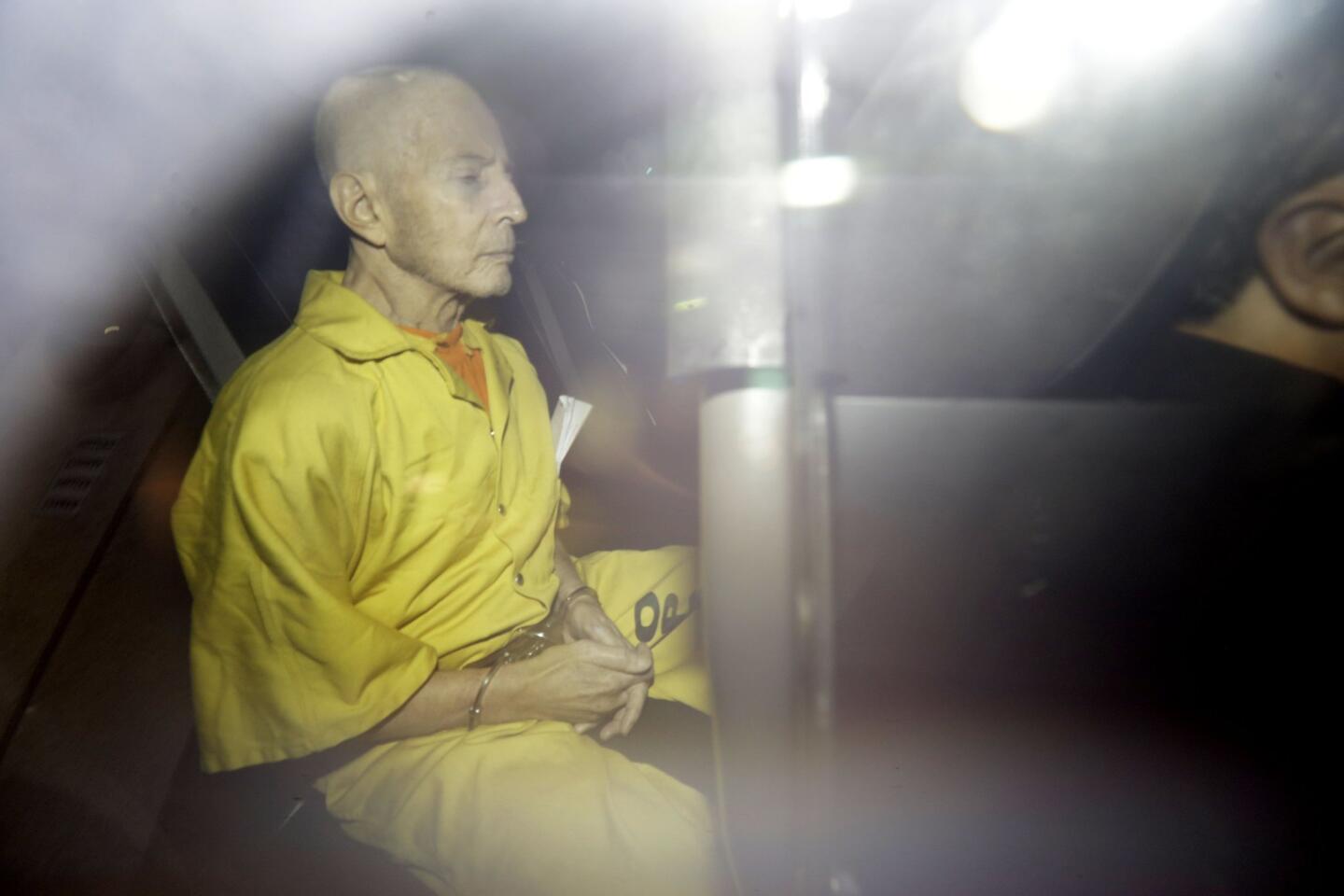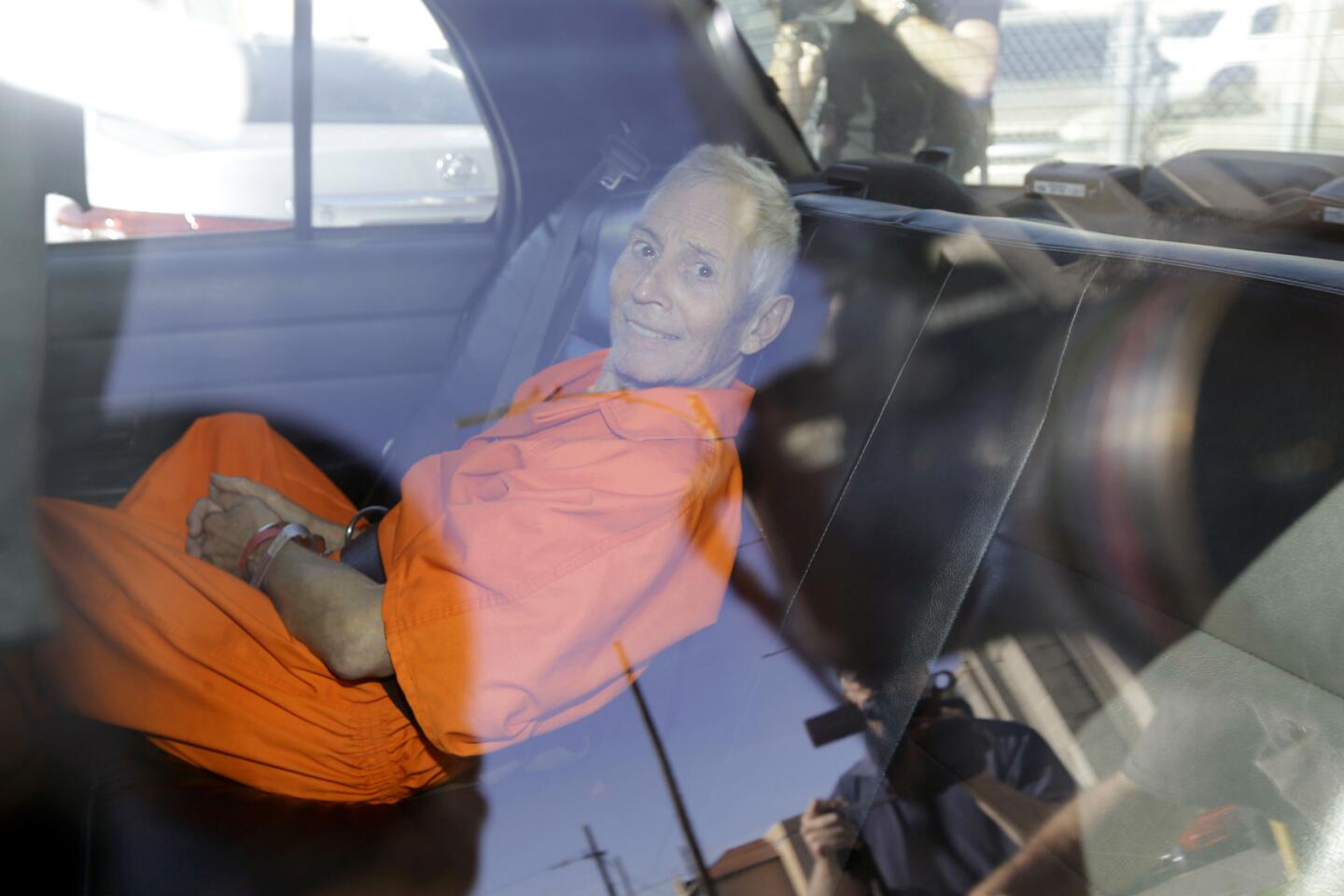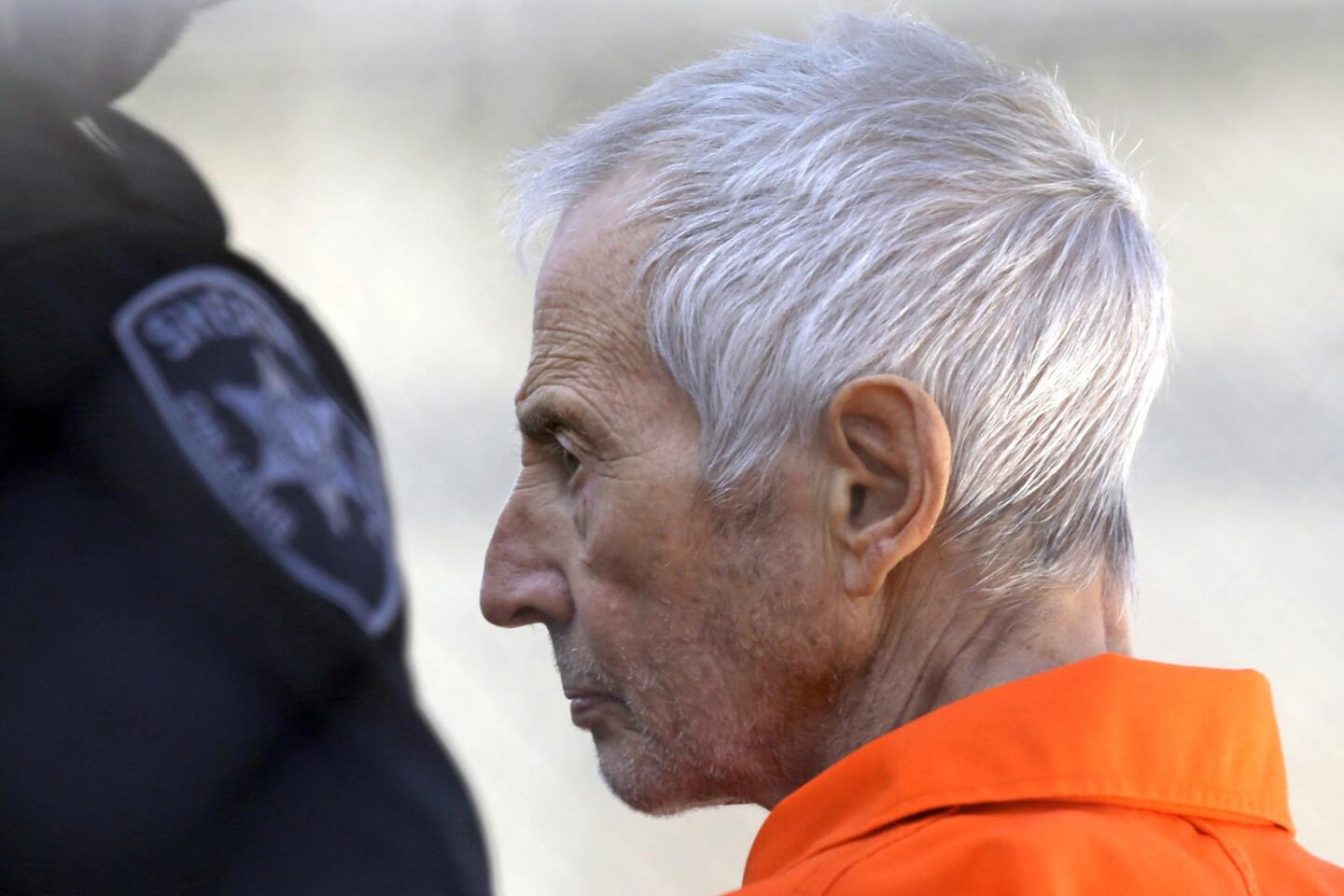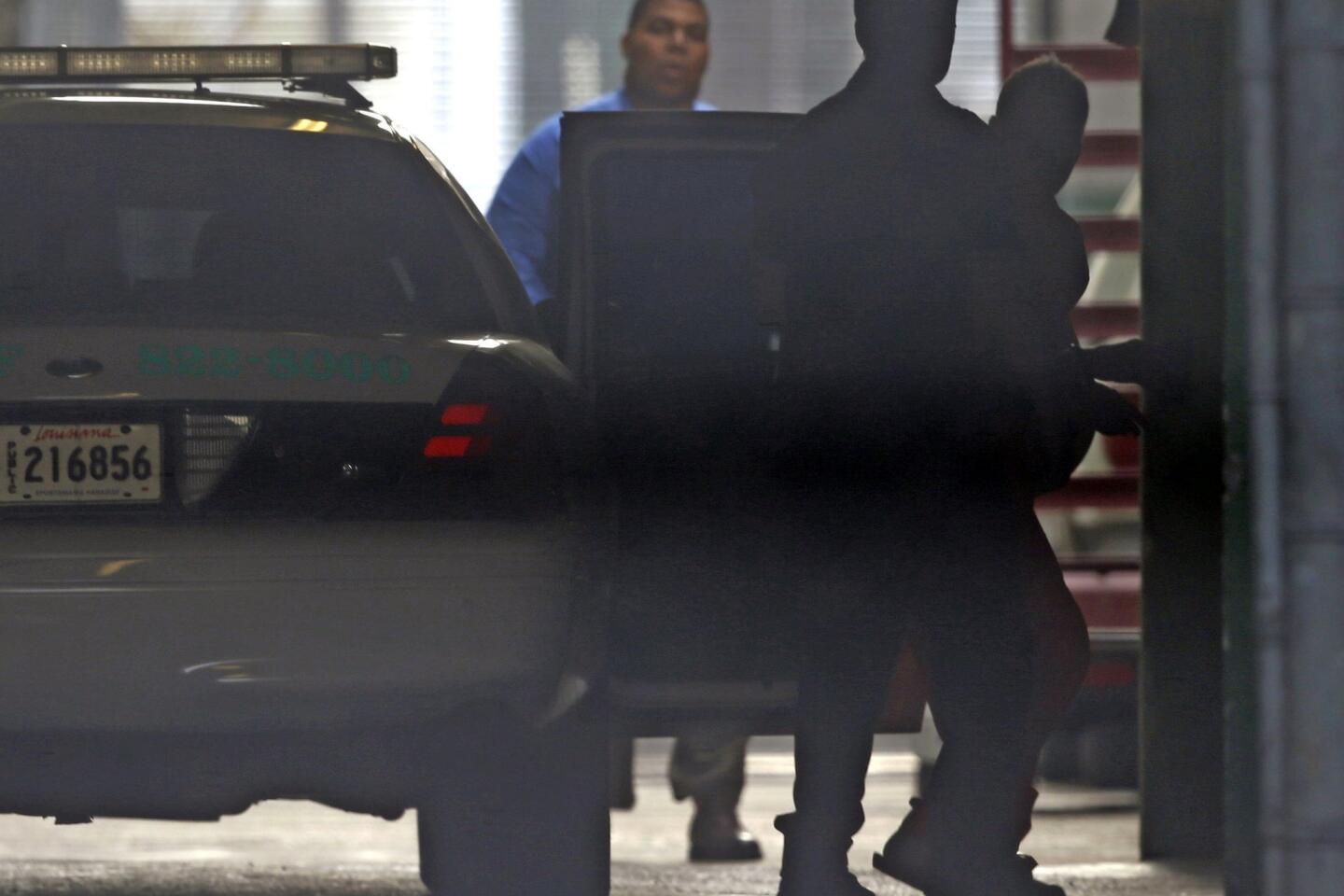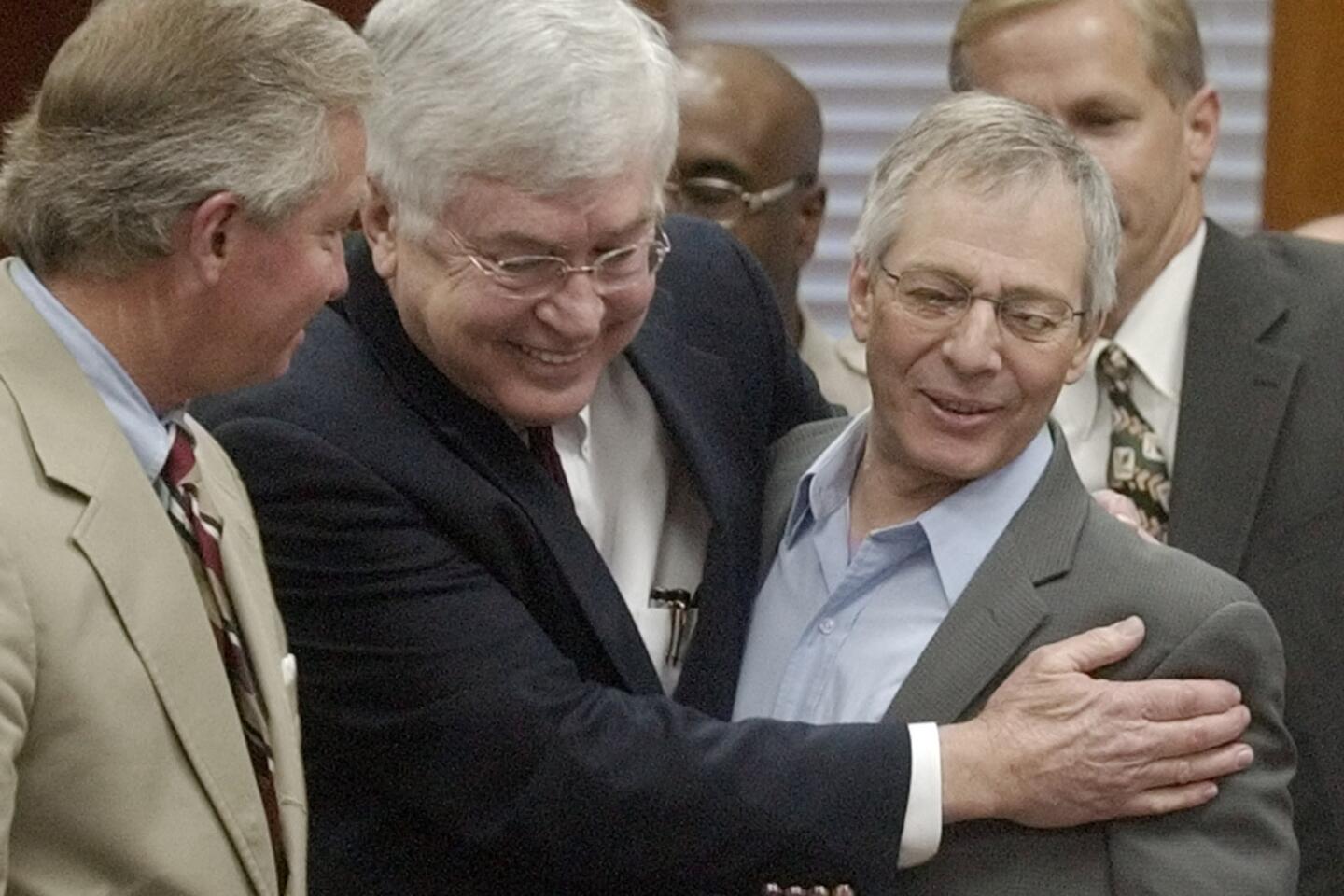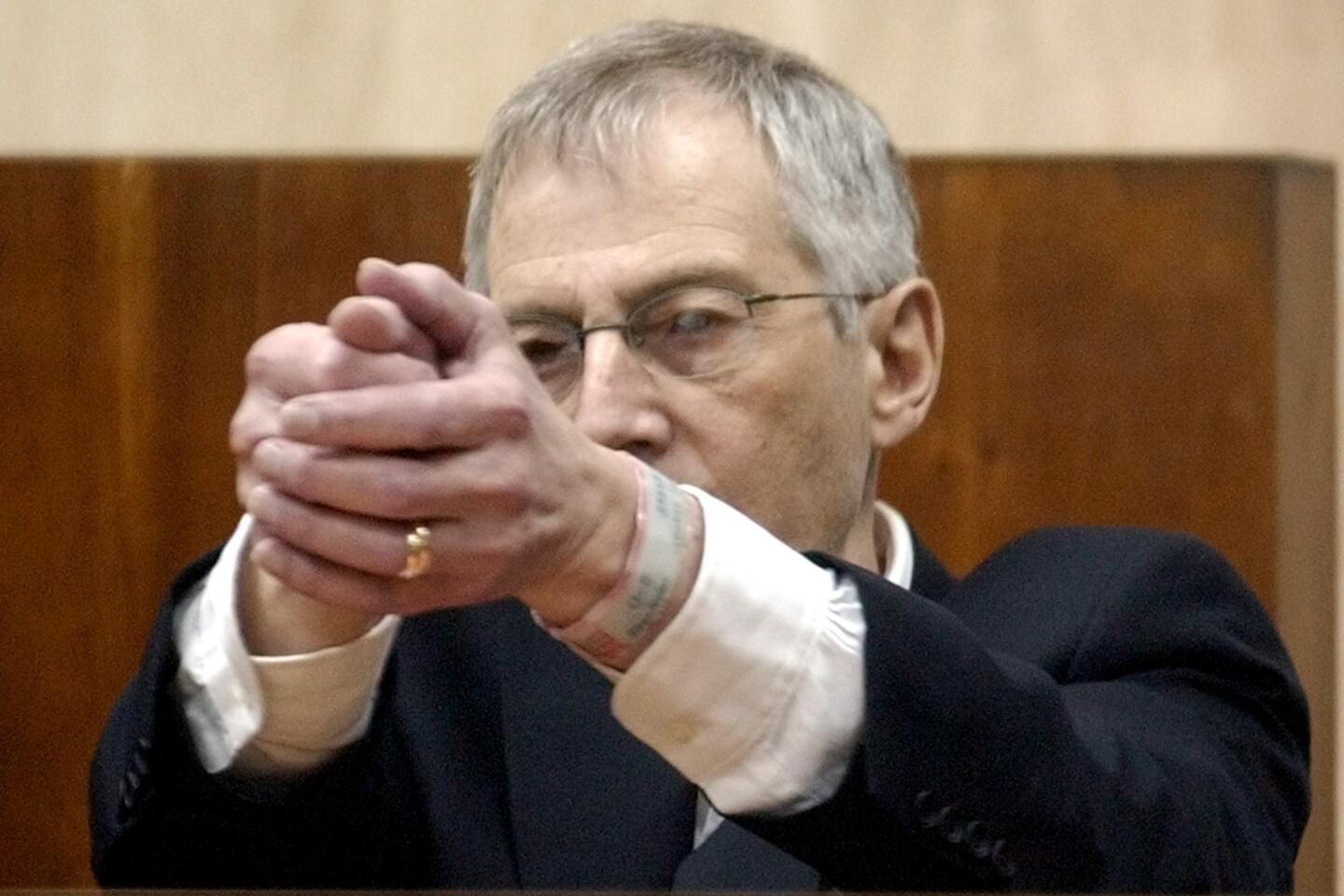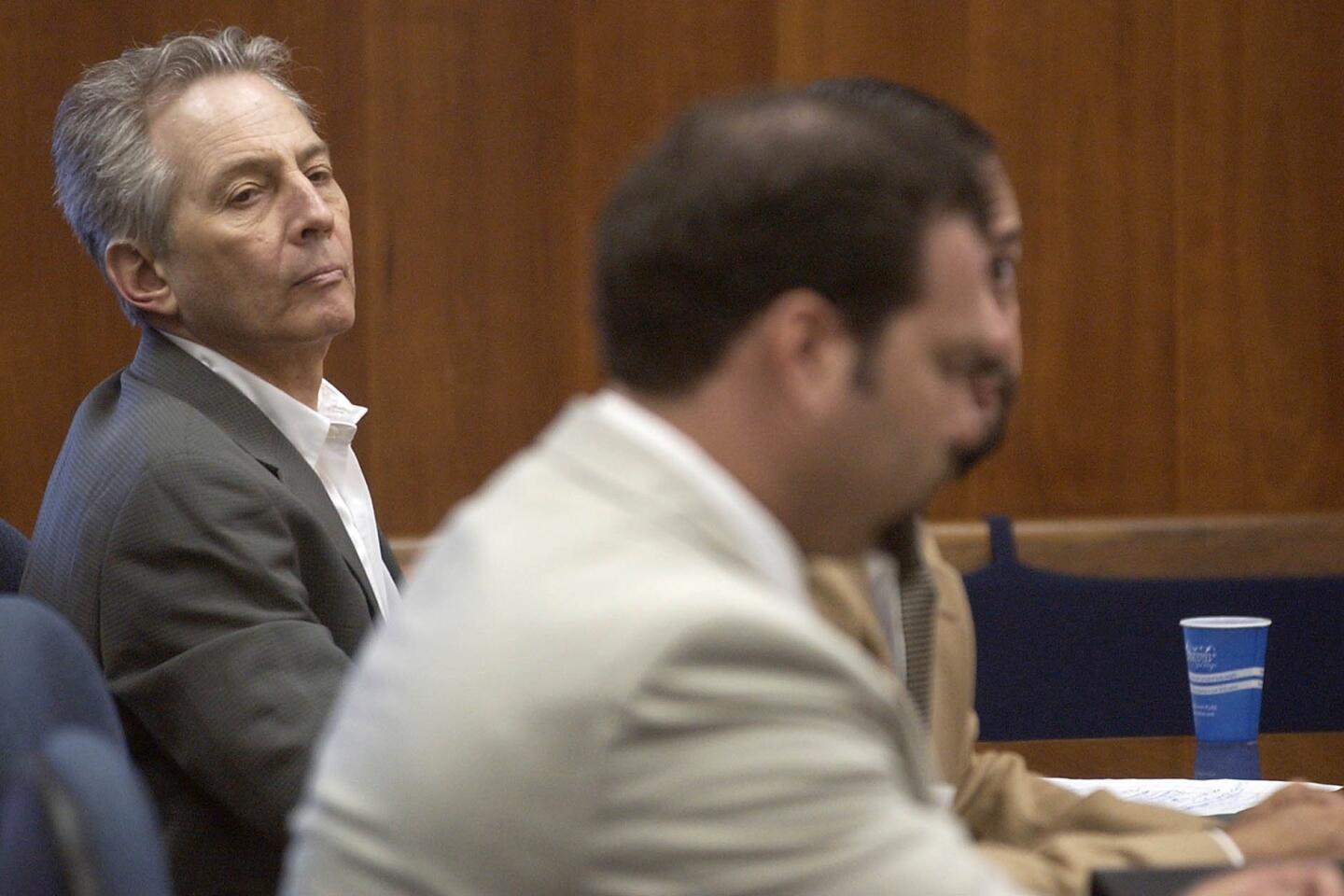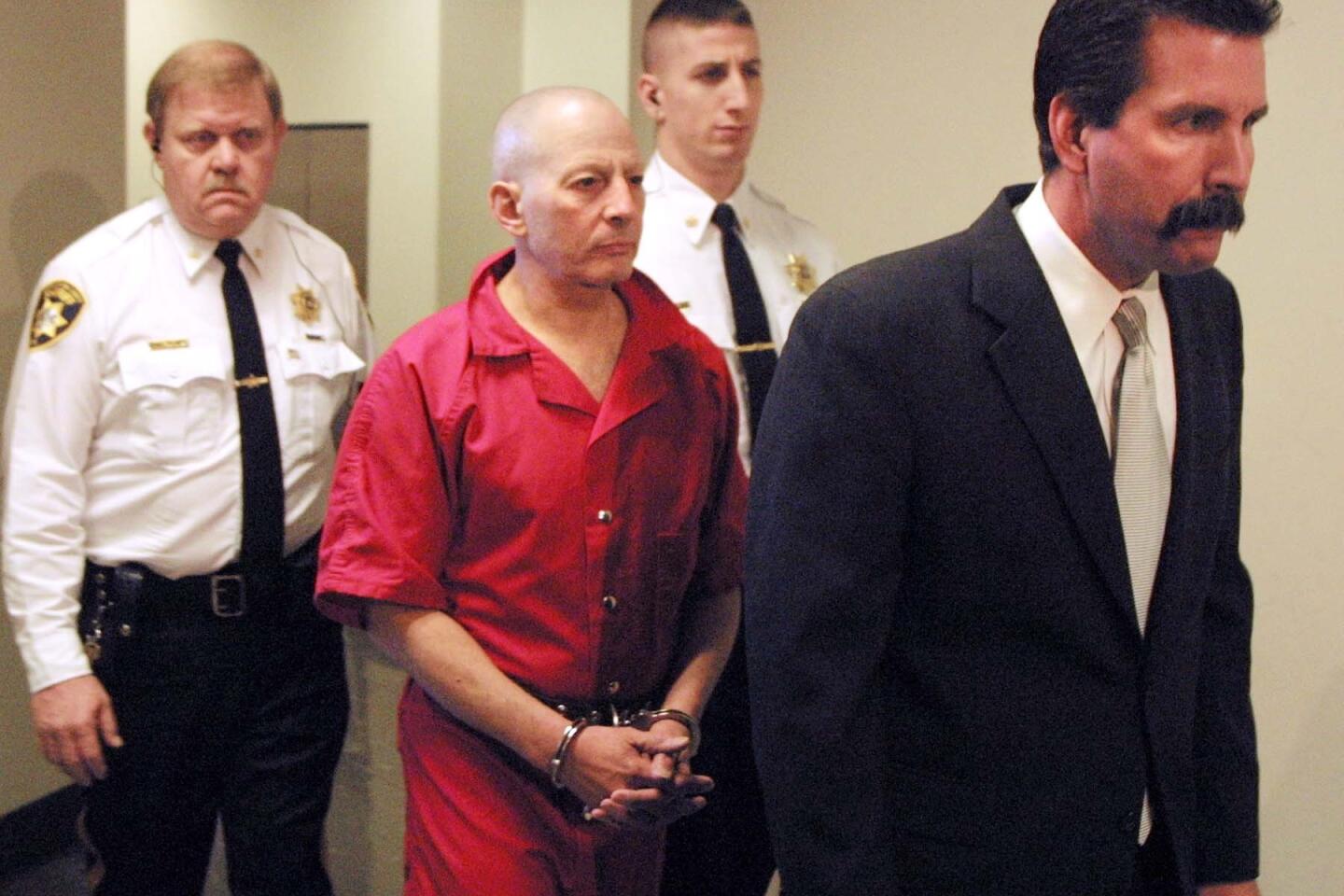With ‘The Jinx,’ a long yet murky tradition of documentary activism
- Share via
On a weekend when “Cinderella” and its old-fashioned storytelling captured the box office, a different tale, about eccentric real estate scion Robert Durst, dominated our consciousness.
The story, involving the HBO docu-series “The Jinx” and its filmmaker Andrew Jarecki, had all sorts of juicy and mythic elements — so many that it could almost itself seem like a fairy tale itself, albeit a dark and particularly gruesome one. What could be more old-fashioned than a filmmaker heroically changing the trajectory of several people’s lives?
Yet what at first seemed like a compelling case of televisual justice — a moral triumph playing out on our Sunday night cable screens — soon became something more complex.
In case you need a quick primer. Durst, the heir to a New York real estate fortune, has been connected to two separate killings and a disappearance over the last 33 years. But despite investigators’ strong belief in his culpability, Durst had avoided prosecution in two of the cases and punishment in the third.
Jarecki, whose interest in Durst began when he made a dramatized film version of the scion’s story called “All Good Things” in 2010 -- in fact, it was Durst who called up Jarecki to suggest a documentary after the movie was completed -- had spent years exploring the three cases, including the killing of Durst friend Susan Berman in Los Angeles circa 2000. Jarecki committed to making a documentary (first a film, it later morphed into a miniseries) about Durst, and HBO has been airing it as a six-parter this winter after its first episodes premiered at the Sundance Film Festival.
As the finale was set to air Sunday night, a real-life shocker unfolded: Durst had been arrested by police in New Orleans after L.A. authorities enlisted their help. A source told The Times that the documentary played a key role. Though the source didn’t say how, it’s very plausible that Durst’s own words in the finale (made seemingly inadvertently when he was by himself in a bathroom and apparently thought a microphone was off) had led to the arrest. In the scene, Durst could be heard saying “What the hell did I do? Killed them all, of course.” Jarecki also confronts Durst with a handwritten note from the presumptive killer to police about Berman’s death that--the film seems to suggest on forensic grounds--was written by Durst.
There are few things as satisfying as justice for dead victims, especially justice of the televised kind, and even more especially of the big-reveal kind, and perhaps even most especially of the kind that comes after we spent so much time believing such justice was elusive. All of this is present in the Durst affair, and it’s what made Sunday night such gripping television.
But “The Jinx” also raises the sort of moral questions that are not nearly as simple — questions that go far beyond the guilt or innocence of one person to the modern form of documentary, which more than ever straddles the line between journalism and entertainment. Far from satisfying a sense of bloodlusty righteousness, “The Jinx” might make us pause to question how we achieve it.
The granddaddy of the doc-as-legal-activism genre came a quarter-century ago with “The Thin Blue Line.” Errol Morris’ story of a murder of a police officer in Texas seemed to simply be recounting a case of justice miscarried, until the suspect whose guilt it questioned, Randall Dale Adams, saw his case reopened. Adams was freed a year after the film came out. There was, it seemed, justice for the wrongly accused. There were also some slippery means to get it there, since the film used staged reenactments, a technique favored neither by journalists nor law-enforcement officials.
Other filmmakers would follow in Morris’ legal activist footsteps. In 1996, Joe Berlinger and Bruce Sinofsky came out with “Paradise Lost” about a set of gory mutilations and killings in rural Arkansas. It, and two films that followed, led to a vast increase in attention on the case. And, in 2011, the so-called West Memphis Three that were serving long jail sentences for the crimes were freed.
It would seem like this and other films are all to the good. A documentary filmmaker, with resources and energy that a taxed (or biased) law-enforcement system lacks, helps shed light on injustice and offer a corrective. And does it really matter, we say, what means are used as long as justice is served?
Except it’s not so simple. The documentarian also has other goals, and some of those may not mesh with that of pure legal or moral justice.
This isn’t the idle criticism of armchair naysayers. It comes from people like Berlinger himself, who on Sunday told my colleague Mark Olsen that he’s not always so sure of the rightness of the documentary-activist movement he’s a leading part of.
“On the one hand I think it’s amazing that Durst has been arrested and Jarecki is moving the needle through this investigatory series. Documentarians don’t often feel the direct impact of their work,” he said. But then, acknowledging that he was as complicit in this as anyone, he expressed reservations about the documentary’s role in this regard.
“There is a fine line between investigation and exploitation and a fine line between journalistic balance and trial by television that we all have to be of aware of and we all have to discuss. To me what ‘The Jinx’ represents is putting a spotlight on the larger issue of how the line between entertainment and reality and investigation has become very muddled.”
He added, “There is a murky, moral gray zone of what is objective reporting versus what’s good for ratings and entertainment value. It’s just emblematic of the decades-long blurring of the line between entertainment, investigation and reportage that I think all of the media is particularly grappling with. Selective withholding of information for the right dramatic moment, stylized re-creations of painful events for the participants, putting ourselves on camera as the crusading, investigative reporter -- all of these things chip away at the sanctity of the journalism.”
In other words, when it comes to a film or TV series, cuts are made, context is elided, emotions are played upon. A film or TV piece, even a nonfiction one made with the best of intentions, is still fundamentally a piece of entertainment. And a piece of entertainment is generally a pretty poor indicator of the truth.
This applies to “The Jinx” as well. Most of us watching Sunday night were thinking-- because of how the episode was framed or just because of our own natural impulse for dramatic resolution--that the “Killed them all” moment was a clear and unassailable statement of guilt.
Chances are we weren’t thinking of a certain piece of context -- that Durst, a congenital liar, often can’t be trusted even on matters of his own culpability. As Jarecki told my colleague Meredith Blake last month, “If you don’t know Bob, there are many things that he says that instantly make you assume he’s guilty. But as you start to delve into his personality a little more, you realize that he also just says some odd things.”
The bathroom moment may in fact have been a confession, made when he thought no one was listening. But it carries a lot more weight -- and erases a lot more doubts -- when framed dramatically for television in the way it was than when, say, presented in the usual and Constitutional manner: as simple testimony in a court, complete with mitigating circumstances.
There is also the question of how documentary and law enforcement interact. A New York Times story said it was “two years” after Durst made the comments until Jarecki and producer Marc Smerling realized what they had. That timeline is muddied by other elements, though, and on a morning show Monday Jarecki said it was in fact just “many months.” And even he couldn’t explain why the arrest happened on the eve of a series finale when the information was turned over to law enforcement a long time ago.
A doc that epitomized the who-knew-what-and-when-did-they-know-it issues of the form is “Catfish.” Long before it was a hit MTV show, it was a movie, a Sundance smash about a young Nev Schulman becoming infatuated with a woman he met online, only to realize over the course of the film she is not who she says she is.
Yet it was soon unclear how much Schulman and the directors -- Henry Joost and Nev’s brother, Ariel -- knew, and when they knew it. Though the filmmakers vehemently denied that they had any prior understanding of the woman’s identity and were learning about her in the chronology showed on screen, questions have always hovered over the documentary. Was key information withheld from the viewer, and thus the journey of the filmmakers exaggerated, to achieve a stronger audience response? It is perhaps just a coincidence, though a strange one, that the man who produced and godfathered that film, helping the young filmmakers organize the footage, was Andrew Jarecki.
We like to watch movies that give us a sense of justice and completion, a sense that what we’re seeing has made a difference that would have been missing had the film not been made (and had we, by extension, not in our own small way participated in it). But the truth is that documentaries, for all the pretensions to the truth, aren’t doing that, or aren’t doing just that. True justice requires a lack of emotion, a lack of stirring visual moments, a lack of manipulation that’s inherent even to the noblest form of edited filmmaking. While it’s nice to stand up and cheer when a documentary comes along and seems to shore up holes in our law-enforcement system, the ethics and realities can be as murky as a Robert Durst statement.
More to Read
Only good movies
Get the Indie Focus newsletter, Mark Olsen's weekly guide to the world of cinema.
You may occasionally receive promotional content from the Los Angeles Times.
